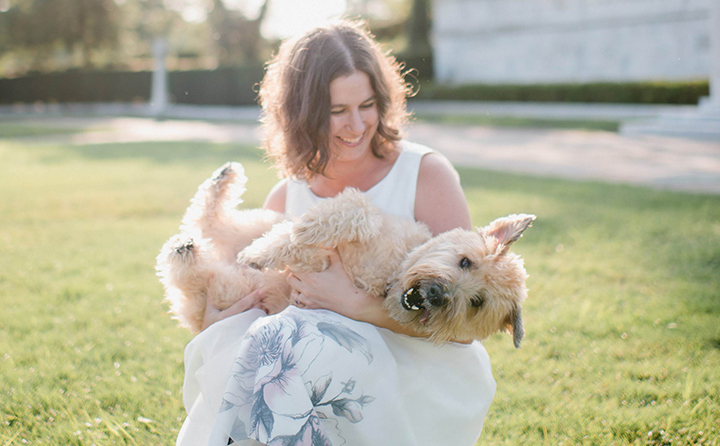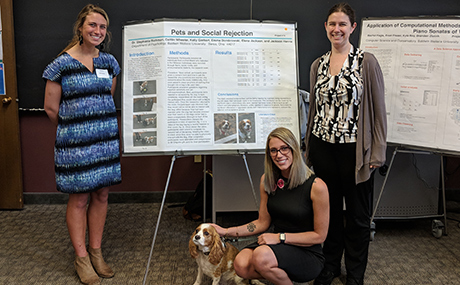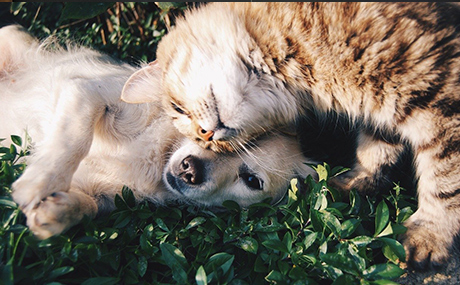Thousands of Americans have adopted dogs and cats to combat the loneliness of COVID-19 quarantine, but what is the emotional impact when a human experiences rejection by a pet?
It's a question a Baldwin Wallace University psychology professor and her students have been seeking to answer. Part of their ongoing research into the effects of pet rejection was recently published in the Journal of Social and Clinical Psychology and highlighted in Psychology Today.
 Dr.
Stephanie
Rothman
has
a
long-held
research
interest
in
human
rejection,
but
it
was
an
experience
with
her
own
dog,
Zephyr,
that
inspired
her
to
mine
the
emotional
impact
of
being
rebuffed
by
a
pet.
Dr.
Stephanie
Rothman
has
a
long-held
research
interest
in
human
rejection,
but
it
was
an
experience
with
her
own
dog,
Zephyr,
that
inspired
her
to
mine
the
emotional
impact
of
being
rebuffed
by
a
pet.
"The promise of unconditional love is what draws many of us to adopt a dog," explains Rothman. "But the pang of pain I felt after sitting down on one end of the couch to be with my dog and watching him immediately jump off to get away got me thinking about pet rejection. As I started talking to others about it, I realized I wasn't alone. Everyone had their own pet rejection story."
 Setting
out
to
study
the
phenomenon,
Rothman
and
her
BW
student
research
assistants
tested
the
reactions
of
college
students
who
were
told
their
scents
were
"rejected"
by
a
dog,
compared
to
others
who
were
told
the
dog
showed
"interest."
Setting
out
to
study
the
phenomenon,
Rothman
and
her
BW
student
research
assistants
tested
the
reactions
of
college
students
who
were
told
their
scents
were
"rejected"
by
a
dog,
compared
to
others
who
were
told
the
dog
showed
"interest."
The findings showed students who were rejected experienced increased negative mood and decreased positive mood, as well as lower feelings of belongingness, meaningful existence, control and self-esteem.
In another study, Rothman analyzed responses to an online survey asking participants to describe their experiences being rejected by pets. She found the emotional pain of being rebuffed by an animal hurts just like human rejection.
"Although some studies have shown that pets can make people feel better and improve health, my research shows that negative interactions with pets make people feel worse," Rothman says.
In an earlier, unpublished study, Rothman discovered that the types of pet rejection that people most commonly experience fall into three categories:
 While
any
type
of
pet
rejection
can
cause
distress,
Rothman's
research
also
affirms
the
significance
of
pets
to
our
families.
While
any
type
of
pet
rejection
can
cause
distress,
Rothman's
research
also
affirms
the
significance
of
pets
to
our
families.
"This research demonstrates the special and important role that pets play in people's lives," Rothman concludes. "If they were not important sources of social connection, people would not react so negatively to being rejected by them."
So, go ahead and help empty the shelters. The risk of rejection will likely be outweighed by the long-term reward.
See more coverage of the research on cleveland.com.